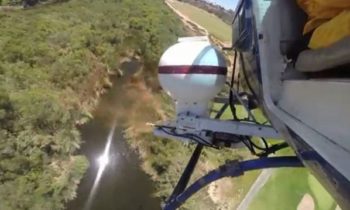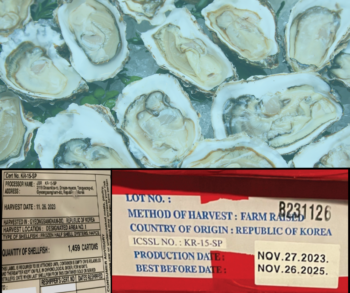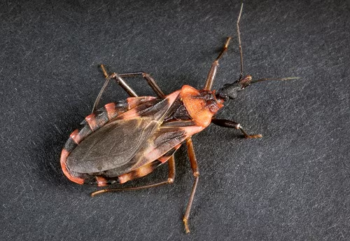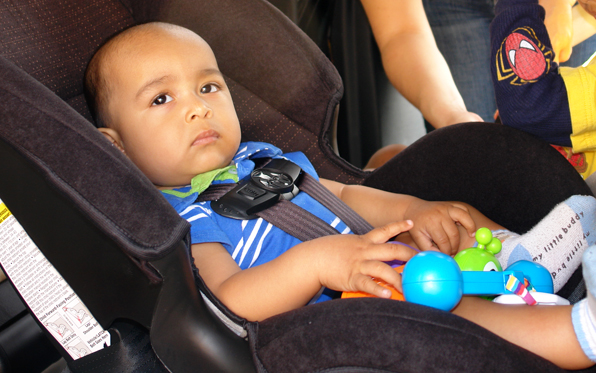Eighteen teams – with names like “Predictably Well” and “The Flying Turtles” – squared off over the weekend with cash prizes at stake to convert health data into useful tools for the public in the San Diego County Code-a-Thon.
In the end, John Alexander’s design for a mobile application that educates residents about the health of their communities along with resources to lead healthier lives – such as locations of gyms, supermarkets, farmers markets and health providers based on their location – took the top prize of $9,000.
“I liked the challenge of simplifying the data and presenting it so that the public can not only grasp it, but actually use it,” said Alexander, a San Diego State University alum who now designs web applications for the military.
Code-a-Thon was hosted by the County of San Diego, Health 2.0 and the California Healthcare Foundation. Teams competed for $22,000 in prizes that was split among the top six proposals. The San Diego event was part of a national series of code-a-thons involving public data that took place over the weekend. The prize money was donated by the California Healthcare Foundation.
The event kicked off Saturday morning with an overview of San Diego County health data, primarily focusing on chronic conditions such as heart disease/stroke, cancer, type 2 diabetes and respiratory disease. These diseases, which in many cases are preventable, account for more than half of deaths in San Diego County and across the country.
“We challenged the participants to humanize the data that we have available and to develop applications that not only educate, but inspire residents to live healthier lives,” said Nick Macchione, director of the County Health and Human Services Agency.
Teams worked all day Saturday and Sunday to develop their designs, which were presented to a panel of judges Sunday afternoon. Participants ranged from medical and science graduate students and data analysts to video game designers and tech-savvy teens.
Teams pitched everything from web applications that allowed cities in the region to challenge each other in health-based competitions to viral survey designs that educated participants about likely health issues based on how they responded to a series of questions.
“Code-a-Thon participants offered a breadth of innovative ideas to help policymakers and the public harness local data,” said Andy Krackov, senior program officer with The California HealthCare Foundation. “We’re grateful for all the hard work that the 18 teams put in to generate new uses for these important health data.”
Wintriss Technical School students Max Sun, 14, and Macky Broido, 15, developed Grade My Health, an app that gives users a quick read on their health compared to the overall health of their community based on a number of factors. The design earned the team a runner-up award and $1,000.
June Clarke, lead teacher at The Wintriss Technical School, said the benefits of participating in the Code-A-Thon go beyond prize money.
“My students have developed quite a few video games,” Clarke said. “But this was an opportunity to do a project that actually helps people, and we were really excited to be part of it.”
The next step for organizers will be working with the winning designers to take their projects from prototype to final versions.
List of Winners
1st Place – $9,000: John Alexander
Project: Mobile application that educates residents about the health of their communities along with resources to lead healthier lives – such as locations of gyms, supermarkets, farmers markets and health providers based on their location.
2nd Place – $5,000: 3-4-50 Busters Brigade
Project: Application that helps community leaders and elected officials use data to develop plans and policies that influence healthy behaviors for their communities. Residents can compare themselves to health information for their community and, in the future, get incentives for healthy behaviors and activities.
3rd Place (Tie) – $3,000: Sandhu
Project: Web-based tool that displays data visually to make it easier for policy makers and residents to organize, analyze and share public health data from San Diego County and other sources.
3rd Place (Tie) – $3,000: Team Interlucent
Project: Web application that makes information personal and easily understandable by prioritizing data, encouraging action, and measuring the effectiveness of health initiatives over time.
Runner-up – $1,000: The Wintriss School
Project: Application that compares the user’s health behavior to statistics that reflect the community in an effort to inspire them to change for the better. Depending on the user’s answers, the application gives advice for healthy behaviors.
Runner-up – $1,000: Civic Knowledge
Project: Mobile dashboard that can be used to give fast, current facts about chronic diseases and behaviors that either cause or prevent those conditions. The dashboard is intended to give policy makers and community leaders easy access to useful information so that they can create data-driven policies.





